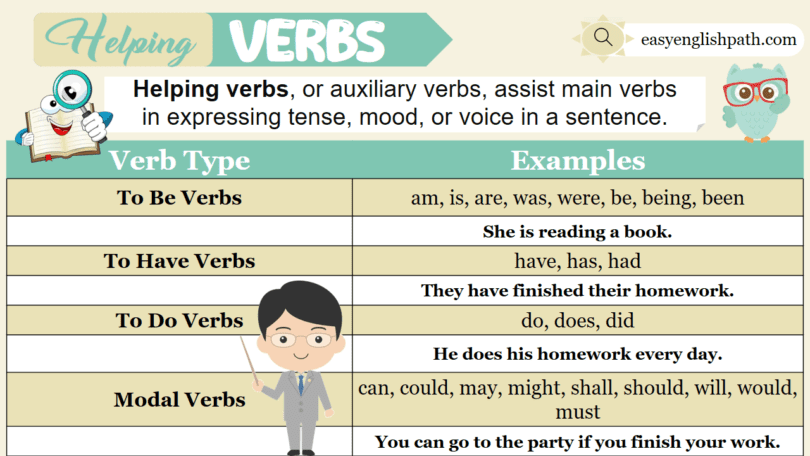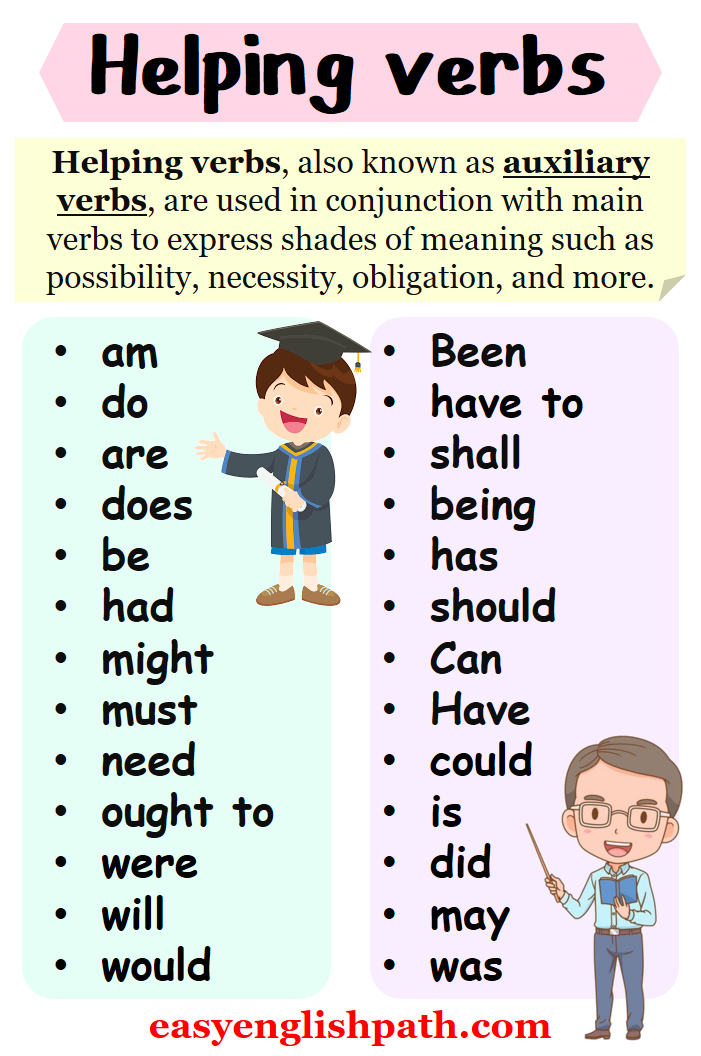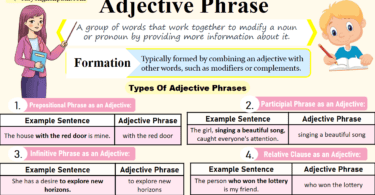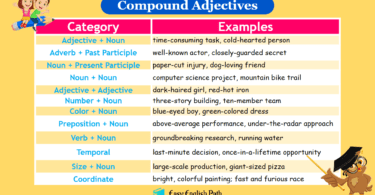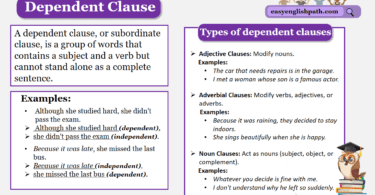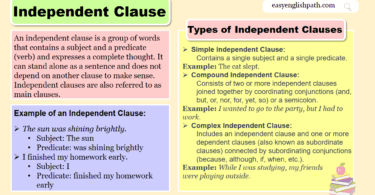Helping verbs, also called auxiliary verbs, are special words in grammar that work with the main verb to make sentences. They help to show when something happened or if it might happen in the future. Words like “be,” “do,” and “have” are some helping verbs examples. The helping verb is the main type of verb. They also include words like “can,” “will,” “may,” and “should.” These words help us say things in different ways, like asking questions or talking about what might happen. Learning about helping verbs helps us to speak and write better.
Helping Verbs Definition:
Helping verbs, also known as auxiliary verbs, are verbs that assist the main verb in a sentence, providing additional information about tense, mood, voice, or emphasis.
Examples:
- She is singing beautifully.
- They have completed their assignments.
- He will arrive at the airport soon.
- We can go to the park tomorrow.
- I am studying for my exams diligently.
Categories of Helping Verb:
Auxiliary verbs fall into two main categories:
- Primary helping verbs
- Modal helping verbs
Primary Helping Verb:
These are essential verbs that are used to form tenses, aspects, and voices.
Examples:
- Be: am, is, are, was, were, being, been
- Do: do, does, did
- Have: have, has, had
Modal Helping Verb:
These verbs express possibility, necessity, ability, permission, or obligation.
Examples:
- Can
- Could
- May
- Might
- Must
- Shall
- Should
- Will
- Would
List of Helping Verbs:
Here is the List of common helping verbs:
- To be: am, is, are, was, were, be, being, been
- To have: has, have, had
- To do: do, does, did
- Modal verbs: can, could, may, might, must, shall, should, will, would
| Present Tense | Past Tense | Future Tense | Modal |
|---|---|---|---|
| am | was | will | can |
| is | were | shall | could |
| are | been | may | |
| do | did | might | |
| does | must | ||
| has | ought to | ||
| have | shall | ||
| had | should | ||
| will | |||
| would |
Helping Verb Examples:
- She is walking to the store.
- He has finished his homework.
- They will be singing at the concert.
- I am studying for my exam.
- You should eat more vegetables.
- We have been waiting for hours.
- She can play the piano beautifully.
- He might visit us tomorrow.
- They could have won the game.
- I must clean the house before guests arrive.
Helping Verb Exercise 1:
- She ____ goes to the store.
- They ____ finish the project on time.
- He ____ study harder for the exam.
- We ____ start cooking dinner soon.
- You ____ clean your room before guests arrive.
- It ____ rain later this evening.
- I ____ call you back in a few minutes.
- They ____ leave for vacation next week.
- He ____ fixes the broken window tomorrow.
- She ____ arrive at the airport early.
Answers:
1. should
2. must
3. should
4. must
5. must
6. will
7. will
8. will
9. will
10. will
Helping Verb Exercise 2:
1. Which of the following sentences uses a helping verb correctly?
a) She eating her dinner.
b) She is eating her dinner.
c) She to eat her dinner.
d) She ate her dinner yesterday.
2. What is the main verb in the sentence: “They have been waiting for hours”?
a) They
b) Have
c) Waiting
d) For
3. In the sentence, “I will be studying for my exam tomorrow,” what is the helping verb?
a) Will
b) Be
c) Studying
d) Tomorrow
4. Which of the following sentences uses a helping verb incorrectly?
a) They will have finish the project by tomorrow.
b) They will finish the project by tomorrow.
c) They will have finished the project by tomorrow.
d) They will have been finish the project by tomorrow.
5. Identify the main verb in the sentence: “She should have gone to bed earlier.”
a) She
b) Should
c) Gone
d) Earlier
6. What is the helping verb in the sentence: “He might have forgotten about the meeting”?
a) He
b) Might
c) Have
d) Forgotten
7. In the sentence, “They are swimming in the pool,” what is the helping verb?
a) They
b) Are
c) Swimming
d) In
Answers:
- ) She is eating her dinner. (Main word: eating)
- c) Waiting (Main word: waiting)
- a) Will (Main word: will)
- c) They will have finished the project by tomorrow. (Main word: finished)
- c) Gone (Main word: gone)
- c) Have (Main word: have)
- b) Are (Main word: swimming)
You May Also Like this

